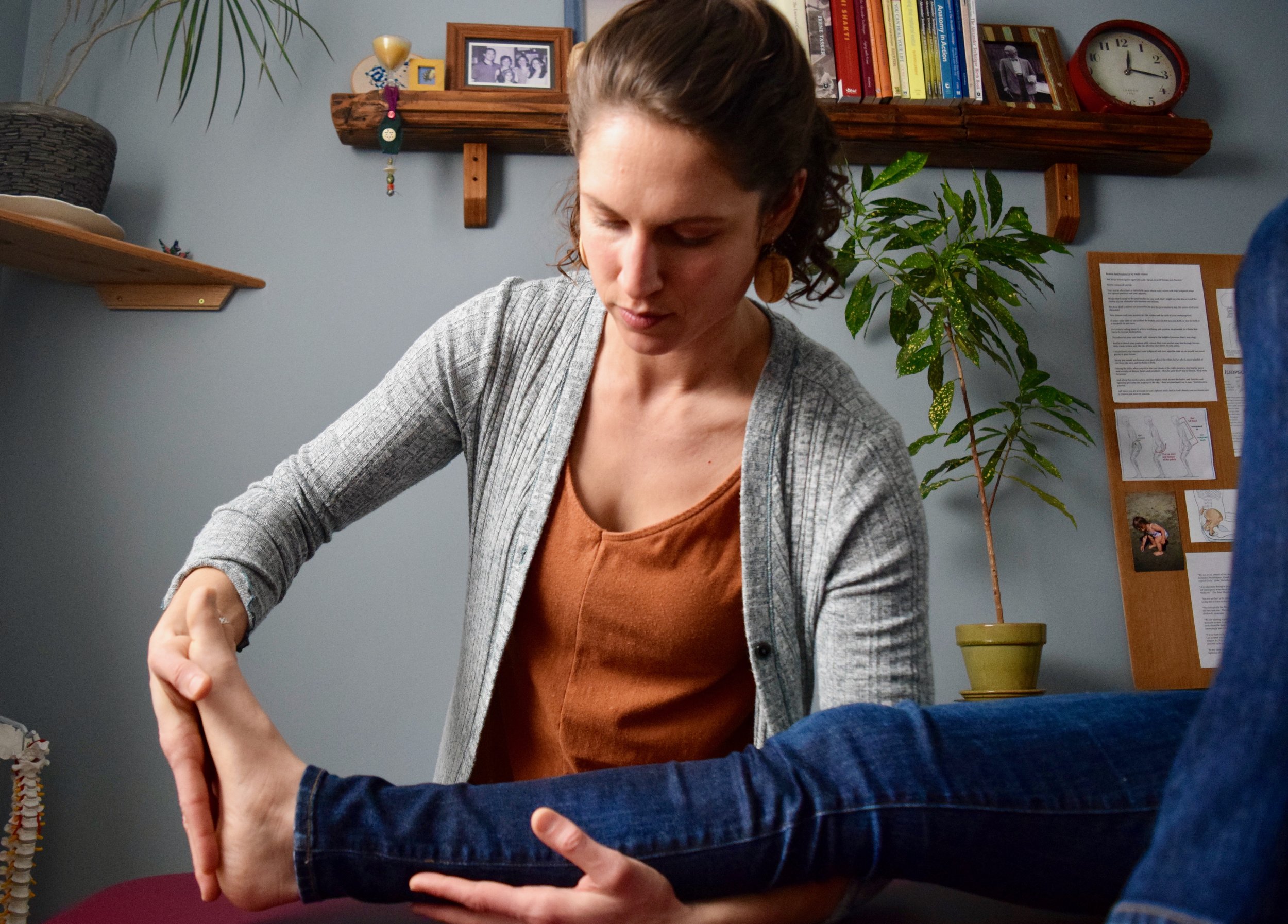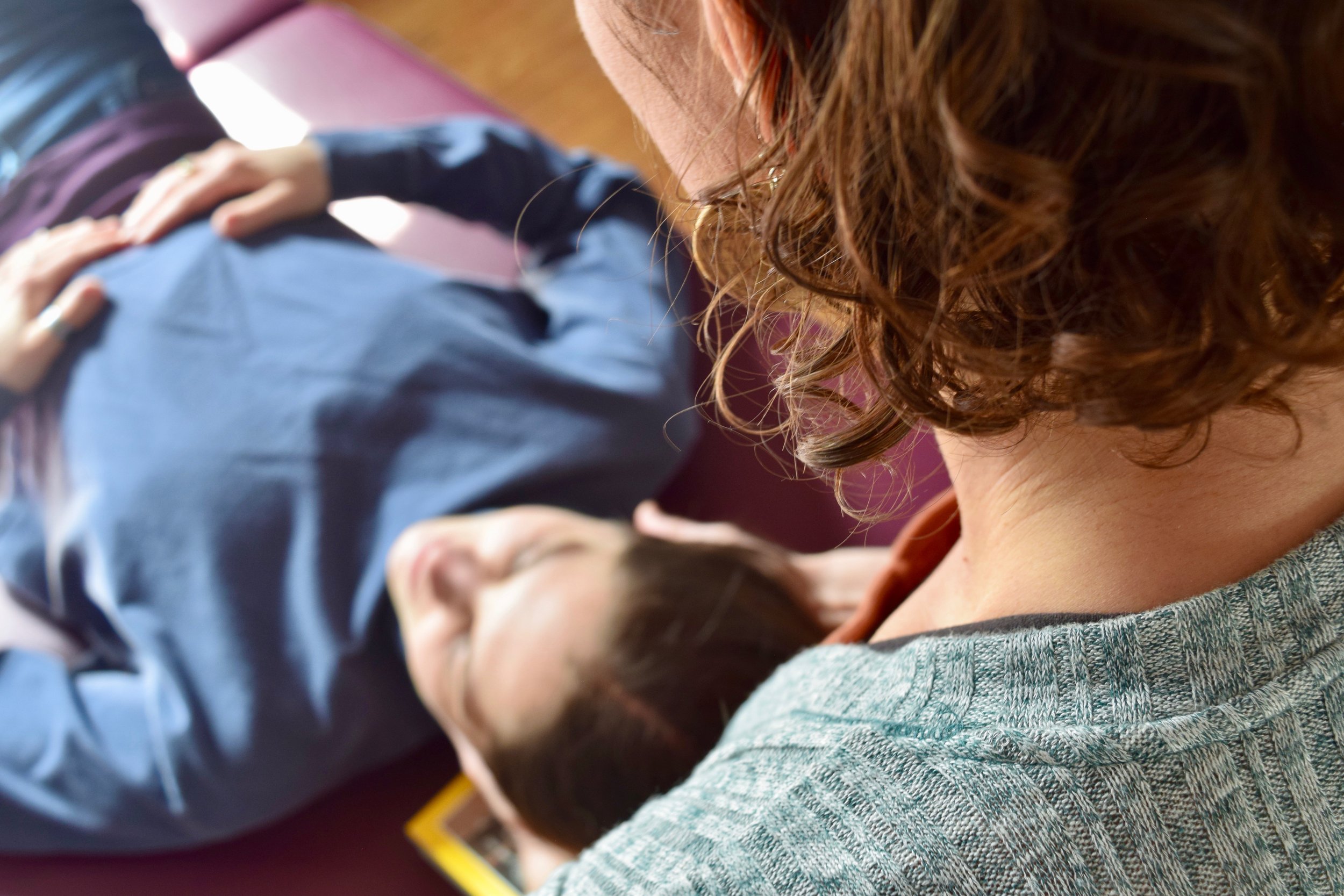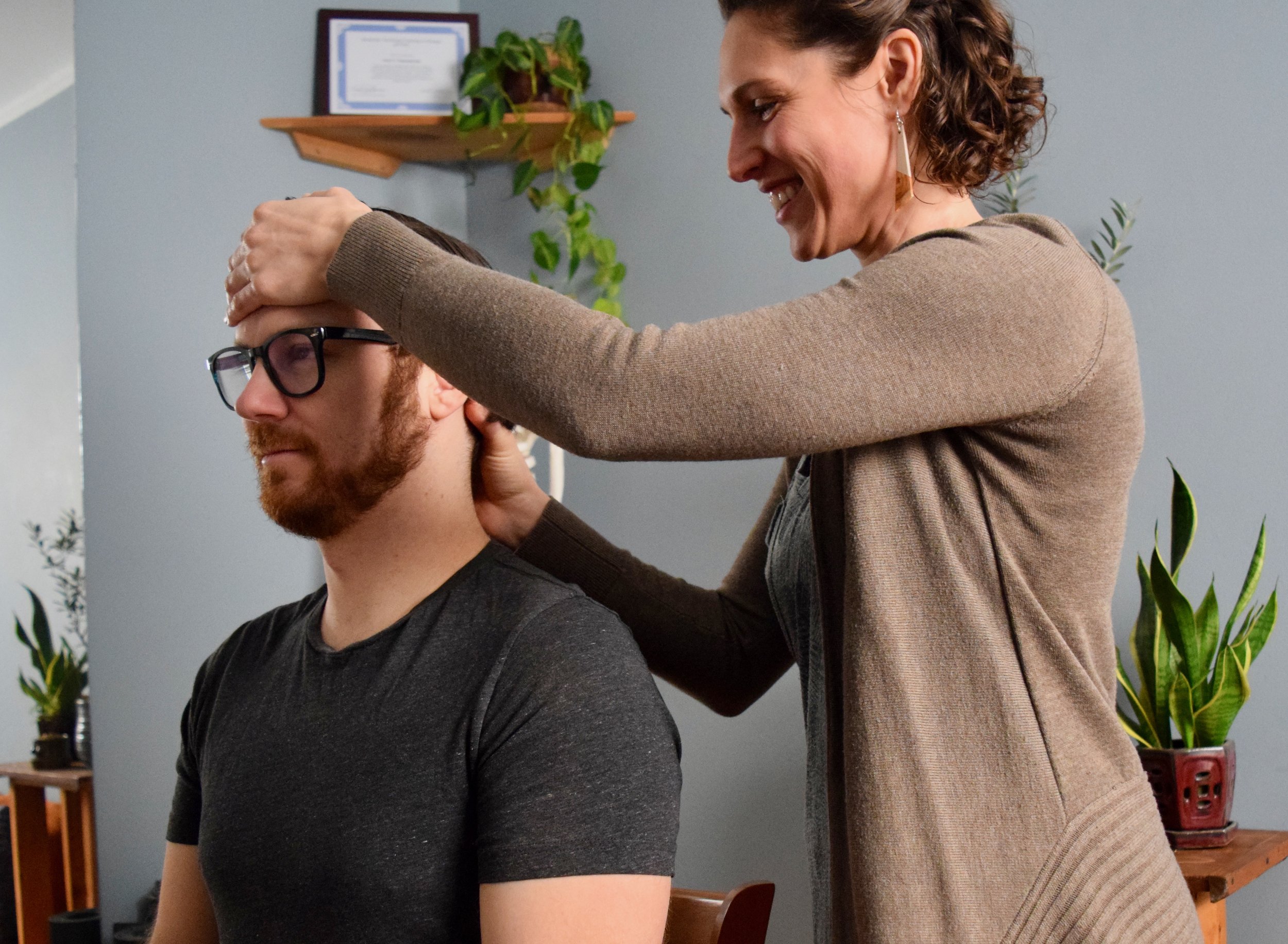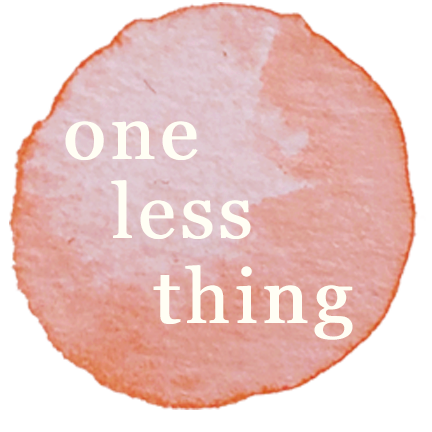
who am i…
eleni kindred
my name is eleni. i am in service to thriving life, our divine design and the beauty therein. i come from a performance background and now find great joy offering hands on guidance and exploration through the alexander technique. i am an amsat certified teacher and completed my 1600 hour teacher training at the attic with daria okugawa in chicago, illinois. other loves include: mothering, wifing, singing, dancing, bowspring(ing), relating as art making, conscious language, sovereign family living, self-healing knowledge, and tending our home and garden.




what is the alexander technique…
the definition of the alexander technique is unique to everyone. i like to describe it as sensory re-education with therapeutic benefits. it provides a means of self-discovery. our intention is to unleash the system of support innate to our physiologic design (the ‘inner spring’) by identifying and calming the habits that get in the way. we explore stimulus and response to invite the possibility of meeting life with freedom and expansion vs contraction and reaction.
who is it for…
anyone interested in meeting themselves with curiosity, patience, kindness, and care. anyone looking to enhance their balance, coordination, awareness and attention. anyone yearning to move with ease, comfort, power, and pleasure in their bodies. anyone with performance anxiety, restricted breathing, or vocal questions and concerns. anyone in the childbearing continuum, tending to little ones, or care-giving our elders. anyone seeking authentic expression or help with their artistic or athletic performance. anyone wondering about the natural use and functioning of our human physiology. anyone hoping to expand their nervous system to meet life’s challenges with grace. anyone willing to take radical responsibility for themselves and their lived experience. anyone committed to cultivating presence, choice, and possibility in their everyday life.
why the alexander technique…
what distinguishes this work from other modalities is our attention to stimulus and response. our focus is that of ‘use’ in action - how we react or respond to life arising in the moment. we cannot separate our thoughts, beliefs, and feelings from the way we move. for example, we cannot raise our hand without thinking we’d like to raise our hand. and the quality of how we raise our hand has everything to do with how we feel about raising our hand as well as our beliefs about the effort required to raise our hand. ‘use’ is our word to encapsulate the physical, mental, and emotional manifestations of the human experience as we move throughout the world.
in alexander lessons we’re interested in how we do what we do. we address the nature of our ‘being’ underlying our ‘doing.’ most of us think, often at an unconscious level, that ‘doing’ means effort. we muscle our way through life with the belief that force is the only way to move our bodies and get anything done. the alexander technique invites us to consider the validity of these beliefs, introducing the possibility of ease and effortlessness into our movements and our moments. through gentle hands-on guidance the teacher helps the student unwind their habits of contraction and reaction, making way for the ‘use of the self’ to expand freely with choice and potential.
how many lessons…
you can approach alexander lessons like any other area of inquiry - for example, learning to play the guitar, swim or speak a foreign language. the only difference being that for us, it’s the body, mind, and spirit with which we’re engaging as our instrument. what level of skill are you seeking? what fulfillment or relief does the exploration offer you? many students find that 15-20 lessons provides a sound foundation for improvement of their awareness and wellbeing. those looking to deepen their experience or tend to specific goals find ongoing longterm lessons a rewarding addition to their self-care practice. there’s always the option to receive a brief introduction to the work and then revisit lessons as life challenges or new interests arise.



